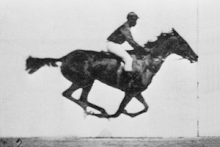Benjamin Lee Whorf claimed that
our mother tongue restricts what we are able to think, and I personally feel compelled to declare that our language and thought are simply two portions of communication, and even if there is a correlation between the two aspects, one is not the determining factor for the other.
Firstly, we must keep in mind that our mother tongue does not defy who we are as people, however, it may give us insights to a particular culture where the language originates from. Therefore unlike Worf's theory I believe that our mother tongue will only expand, intensify and broaden our thoughts and imagination, but in no way will it restrict or disrupt the way the way we think. Furthermore, taking into account that I have been subjected to various languages over the course of my life, I must say that knowing more than one language strengthens you as a person and prepares you to face the brisk and radically globalised world.
For example, the Japanese language is spoken throughout Japan but the Northern dialect (the Japanese spoken in Hokkaido or Akita) will differ incredibly to the southern dialect of Okinawa. Also, the Japanese which is used when speaking to an elder person, a person who is respected, or somebody you do not know very well (teachers, guests, even cashiers at supermarkets), known as "keigo" or "teineigo" (which literally would translate to polite language), would not even be possible to compare to "kenjougo", or colloquial language.
In contrast, the native Paraguayan language, Guarani, has only one form in which it is spoken. Whether you are speaking to the president or a peasant, the language remains consistent. Now, this does not imply that politeness is nonexistent in the Paraguayan culture, which brings us to the next question- can a concept exist without words to describe it? As seen in the following links, evidently not.
Language, therefore, is nothing but a medium of transmission of information from one another. It does not control our minds, nor does it construct a barrier to the depth in our ability to imagine.





